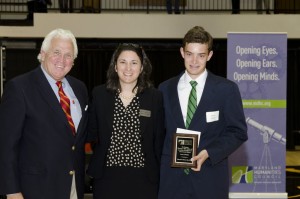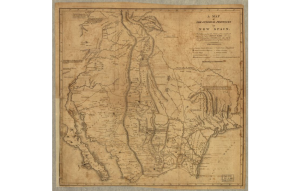Did you know that One Maryland One Book and Letters About Literature are programs of the Maryland Center for the Book? Did you know that the Maryland Center for the Book is part of the Maryland Humanities Council?
If you’re reading this, you’re probably familiar with these terms. But you might not know the story behind them. That’s why we decided to bring our most frequently asked Center for the Book related questions into one place – this blog!
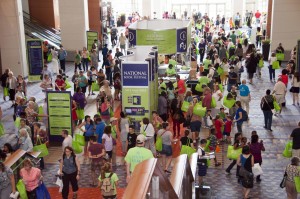
What is this “Center for the Book”? And how can I visit?
Good question! There is one national Center for the Book in the Library of Congress (LOC for those in the know). And it’s not a physical place. Instead, the Center for the Book is more of a movement that has its offices in the LOC.
The Center for the Book is all about stimulating Americans’ interest in books. The Center sponsors national writing contests such as Letters About Literature, organizes the National Book Festival, hosts informative forums (e.g. Symposium on Diversity in Children’s Literature), and sponsors a ton of fun and interesting events.
What is the story behind the Center for the Book?
Daniel Boorstin (Librarian of Congress 1975-1987) was in love with books. Boorstin called books the “Anytime, Do-It-Yourself, Energy Free Communication Device”; he was amazed at how books transport knowledge from one mind to the next using only the reader’s focus and the flip of a page. Boorstin also felt passionately about promoting books and advocating for new tomes and talesthat reflect our ever-changing world. As he wrote, “we have a special interest to see that books do not go unread, that they are read by all ages and conditions.”
When Boorstin was appointed as Librarian, he promoted the idea of bringing people together around books: to appreciate them, to learn about them, and—of course—to read them. Two representatives championed Boorstin’s ideas in the House of Representatives and Congress voted to support a Library of Congress program that would promote books and their role in our society. President Jimmy Carter approved this movement and in October 1977, he signed the legislation that would create the Center for the Book.
Ok, but what’s the “Maryland Center for the Book”?
While the Center for the Book was created to foster and support conversations and education about books across the United States, the national office relies on state centers for the book to locally manage national initiatives and to provide programming that is unique and interesting to its citizens. There is a center for the book affiliate in every U.S. state, territory, and the District of Columbia.
It’s this special combination of national reach and grassroots work that make the relationship so successful. Center for the Book Director John Cole, who has led the Center for the Book since it began in 1977, said “I have a wonderful job because it brings me in touch not only with authors and writers, but with book people around the United States and around the world.”
Still have a question or want to share your own Center for the Book knowledge? We enjoy answering questions and we love to hear your stories. Share in the comments!


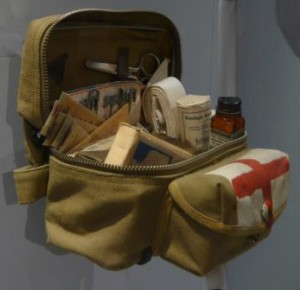
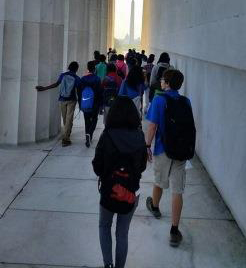 Over the years I have developed a partnership with The National Park Service (NPS), “America’s Best Idea.” In conjunction with the approaching 100-year anniversary of the NPS, my students have been working with The President’s Park in Washington D.C. on a project called “The White House Centennial Project.” Over this past year my students have not just been learners of the history of the United States and its Presidents at the White House, but now have transitioned into teachers of this vital history themselves. They have created investigations for future students to conduct both in the White House Visitor Center and outside on the grounds of the park itself. Investigations range from questions like “How does the White House change during the time of war?” to exploring the effects of climate change on the treasured memorials in the park. They ask students to assess damage of both physical and chemical weathering on the memorials and statues and problem solve solutions to fixing the damage. Perhaps the most exciting investigation is interviewing protestors north of the White House. What are they protesting? What are their goals? How would you come up with a compromise to please both parties? To learn more about this project check out their work on our blog:
Over the years I have developed a partnership with The National Park Service (NPS), “America’s Best Idea.” In conjunction with the approaching 100-year anniversary of the NPS, my students have been working with The President’s Park in Washington D.C. on a project called “The White House Centennial Project.” Over this past year my students have not just been learners of the history of the United States and its Presidents at the White House, but now have transitioned into teachers of this vital history themselves. They have created investigations for future students to conduct both in the White House Visitor Center and outside on the grounds of the park itself. Investigations range from questions like “How does the White House change during the time of war?” to exploring the effects of climate change on the treasured memorials in the park. They ask students to assess damage of both physical and chemical weathering on the memorials and statues and problem solve solutions to fixing the damage. Perhaps the most exciting investigation is interviewing protestors north of the White House. What are they protesting? What are their goals? How would you come up with a compromise to please both parties? To learn more about this project check out their work on our blog: 